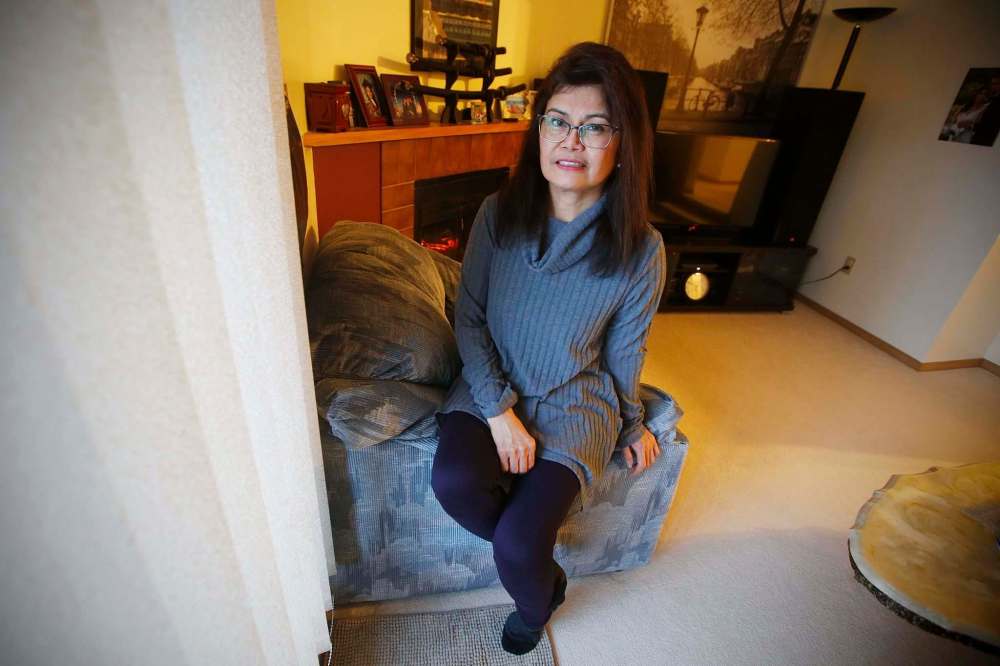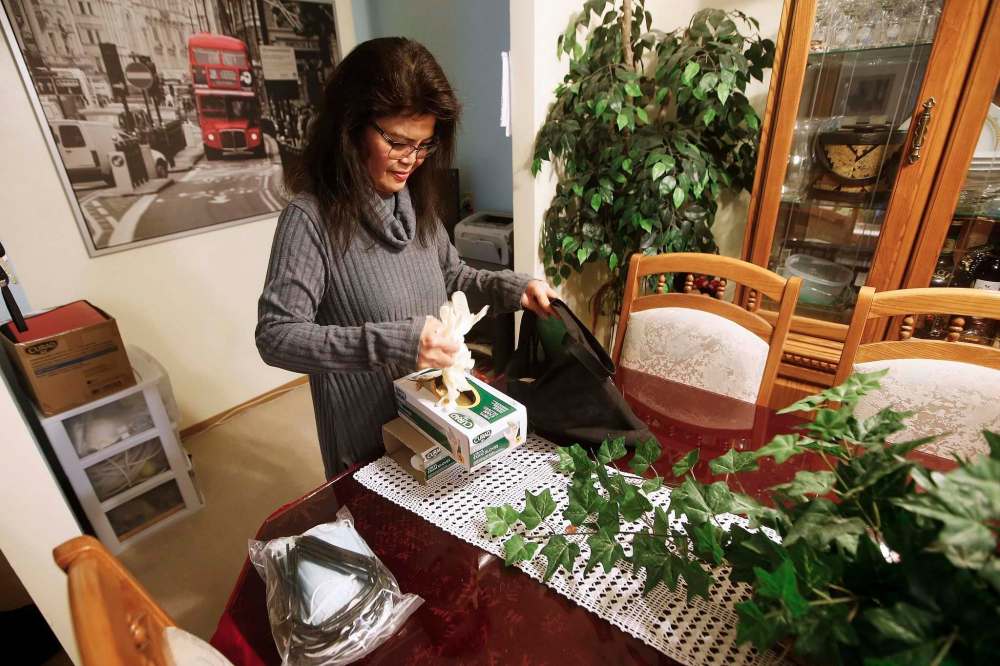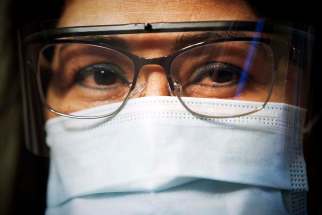In Manitoba, Filipino, African and South Asian residents bear brunt of COVID-19 infection rates
Read this article for free:
or
Already have an account? Log in here »
To continue reading, please subscribe:
Monthly Digital Subscription
$0 for the first 4 weeks*
- Enjoy unlimited reading on winnipegfreepress.com
- Read the E-Edition, our digital replica newspaper
- Access News Break, our award-winning app
- Play interactive puzzles
*No charge for 4 weeks then price increases to the regular rate of $19.00 plus GST every four weeks. Offer available to new and qualified returning subscribers only. Cancel any time.
Monthly Digital Subscription
$4.75/week*
- Enjoy unlimited reading on winnipegfreepress.com
- Read the E-Edition, our digital replica newspaper
- Access News Break, our award-winning app
- Play interactive puzzles
*Billed as $19 plus GST every four weeks. Cancel any time.
To continue reading, please subscribe:
Add Free Press access to your Brandon Sun subscription for only an additional
$1 for the first 4 weeks*
*Your next subscription payment will increase by $1.00 and you will be charged $16.99 plus GST for four weeks. After four weeks, your payment will increase to $23.99 plus GST every four weeks.
Read unlimited articles for free today:
or
Already have an account? Log in here »
Hey there, time traveller!
This article was published 01/03/2021 (1743 days ago), so information in it may no longer be current.
For the past 15 years, Mely Dela Cruz has been looking after seniors in their homes, and she didn’t stop when COVID-19 started to spread.
The home-care aide has worked throughout the pandemic, meticulously donning her personal protective gear and asking her clients COVID-19 screening questions before she goes into their homes.
“I didn’t stop working,” she said. “I know people need me — they need help.”

Filipina women such as Dela Cruz are bearing much of the brunt of COVID-19 in Manitoba. They are contracting the virus at higher rates, along with other racialized people who work in front-line jobs, newly released provincial data show.
COVID-19 infection rates are higher among Indigenous, Filipino, African and South Asian residents of Manitoba, likely because they’re over-represented in essential labour fields, says the COVID-19 by Race, Ethnicity and Indigeneity report, which was released Monday.
Racialized people account for 51 per cent of positive COVID-19 cases in Manitoba, even though they make up only about 31 per cent of the province’s population. Filipina women, in particular, appear to be testing positive at disproportionately high rates — representing 12 per cent of Manitobans who became infected, although they account for seven per cent of the population.
It’s the first time the province has released race-based data it has been collecting since last May, when it became mandatory for public health nurses and contact-tracers to ask Manitobans who tested positive for COVID-19 to self-identify their ethnicity.
Still, the question is only being asked about 67 per cent of the time in different health regions in the province, and the report notes the data would be more reliable if the question were consistently asked at least 75 per cent of the time. The sample sizes for particular industries are small, but the report indicates most of the COVID-19 infections are in the food manufacturing, transportation and service industries, including accommodations and retail.
The burden of this virus, the report notes, is lowest for white men.

“We knew early on that BIPOC (Black, Indigenous and people of colour) communities would be disproportionately affected, just as they are in other jurisdictions, so we really wanted to see the data to be able to report back to our partners and try to use this to find solutions,” said Manitoba chief provincial public health officer Dr. Brent Roussin. When asked how, specifically, public health officials would use the data in the short term, Roussin said they will supply materials in more languages.
The figures are unsurprising to many, and opposition politicians say the data comes too late to make proactive changes to policy.
NDP Leader Wab Kinew said the government should have released the information sooner, during the height of the second wave of the pandemic, last fall.
“Now that this information has been released, it’s incumbent on government to work with people from these communities to find ways that we can keep everybody in the province safe from COVID-19,” he said.
Liberal Leader Dougald Lamont said the province should factor in infection risks from different demographic groups when setting COVID-19 vaccination priorities.

Lamont also said the information provided Monday would have been more useful had updated population figures been used. He noted that population data used in the report dates back to the 2016 census.
The report shows that governments need to do more to provide comprehensive paid sick leave to all employees, even those who work in precarious jobs, said NDP MLA Malaya Marcelino, critic for immigration and the status of women. Marcelino said she hears from women who work in care homes who have contracted the virus at work and brought it home to their families. They need proper sick pay, she said.
“They’re the ones who are keeping the economy going; they’re the ones who are protecting everybody else, so that everybody else can stay home and stay safe. These women do not have the luxury to stay home and stay safe.”
For her part, Dela Cruz hasn’t contracted COVID-19. She hears from people who express fear that she may be carrying the virus or bring it into their homes, but overall, she said she trusts her clients and they trust her. She’s trying to stay upbeat.
“I feel confident going to work because I’ve always been careful,” she said. “So far, I’m OK.”
— with files from Larry Kusch

katie.may@freepress.mb.ca
Twitter: @thatkatiemay

Katie May is a general-assignment reporter for the Free Press.
Our newsroom depends on a growing audience of readers to power our journalism. If you are not a paid reader, please consider becoming a subscriber.
Our newsroom depends on its audience of readers to power our journalism. Thank you for your support.
History
Updated on Monday, March 1, 2021 7:25 PM CST: Fixes typo in photo caption.
Updated on Tuesday, March 2, 2021 8:59 AM CST: Minor copy editing changes









